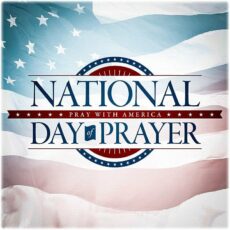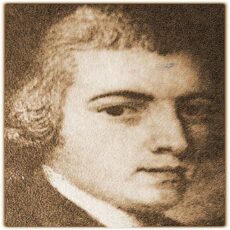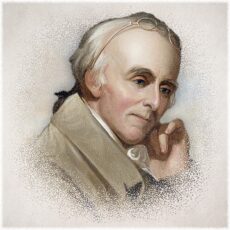Results for: "American History"
The results for your search of "American History" are listed below. Please click on the title or image to navigate to the desired item.
Please check the page navigation indicator at the top right or bottom right of the results to determine the number of search pages containing articles with the keyword(s): "American History".
National Day of Prayer
American History, Christian Calendar (Holidays), Christian History, Christian Social Influence, Christian Witness, May, Schedule Post
The National Day of Prayer is held the first Thursday of May. For more information on this important national event, navigate to the National Day of Prayer website by clicking this message box. Celebrating Our Christian Heritage! We are a user supported non-profit organization. Your small gift is tax-deductible and will go a long way to help us meet our operating budget — and it is vital, because America deserves to know its true heritage. Please contribute today! Click to donate Related Reading Christian Living in JanuaryChristian Living Articles | January ArticlesWhereas the end of...Read more... Read more... -->
How Judicial Activism Silences “The People”
American History, American Judiciary, Christian History, Christian Social Influence, Christian Witness
This post is part 3 of the series:The JudiciaryAt the beginning of the twenty-first century, American government appears to have become little more than a judicial oligarchy, with liberal judges and other members of jurisprudence demanding to have the final say on matters of local, state, and national government. On Friday, May 9, 2014, Pulaski County Circuit Judge Chris Piazza ruled Arkansas' voter-approved ban on gay marriage to be "unconstitutional." Though legal rankling ensued the following week, by the end of that week, Arkansas' fate was sealed—by the capricious stroke of one judge!...Read more... Read more... -->
Benjamin Harrison V
April Articles, Signers of Declaration of Independence
April 24, 1791 Benjamin Harrison V passed away Benjamin Harrison V (April 5, 1726 – April 24, 1791) was an American planter and merchant from Charles City County, Virginia, a revolutionary leader and a Founding Father of the United States. He received his higher education at the College of William and Mary. Harrison was a representative to the Virginia House of Burgesses for Surry County, Virginia (1756–1758, 1785-1786), and Charles City County (1766–1776, 1787-1790). He was a Virginia delegate to the Continental Congress from 1774 to 1777 and, during the Second Continental Congress, was a...Read more... Read more... -->
Benjamin Rush
American History, April Articles, Christian Calendar (Holidays), Christian History, Signers of Declaration of Independence
April 19, 1813 Death of Signer, Dr. Benjamin Rush Benjamin Rush (January 4, 1746 – April 19, 1813) was a Founding Father of the United States. Rush lived in the state of Pennsylvania and was a physician, writer, educator, humanitarian, as well as the founder of Dickinson College in Carlisle, Pennsylvania. Rush signed the Declaration of Independence and attended the Continental...Read more... Read more... -->
Eye-Witness to America’s First Struggle for Liberty
Historical, Products, Role of Pastors
$8 @ Amazon Store April 19, 1775 First Battles of American Revolution Throughout the twentieth century, the true Christian origin of America has been eroded by Darwinists, Marxists, and the irreligious. Mountains of evidence exist that prove America was founded upon the biblical principles of the Christian Faith. And, it was this Christian foundation that quickly fashioned America into a moral, economic, cultural, and military global leader. But around the world, Darwinism has been the primary cause of human suffering since Darwin's Origin of Species made its appearance in 1859. Co-opting...Read more... Read more... -->








